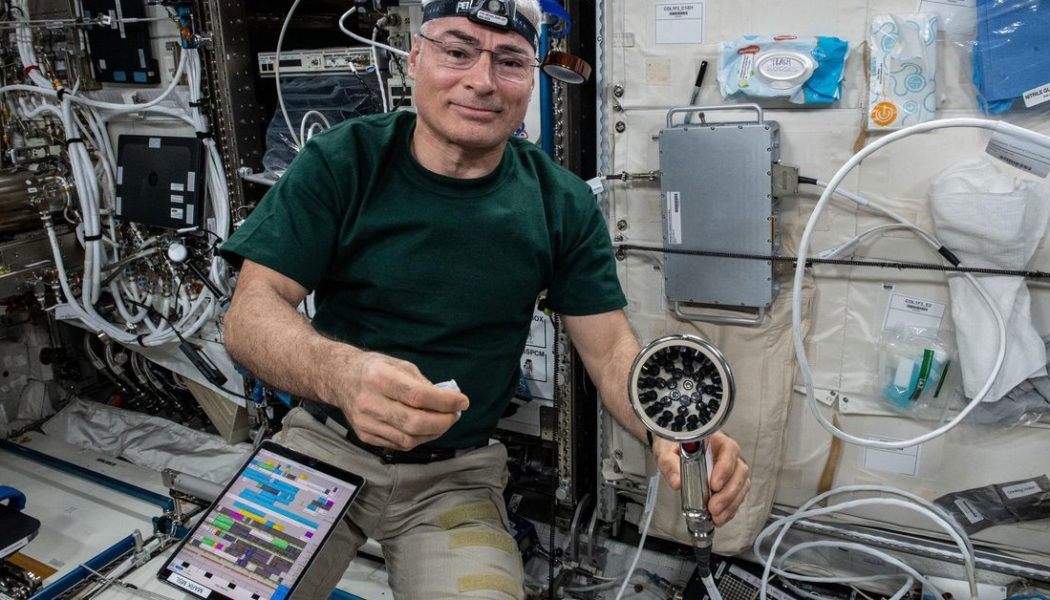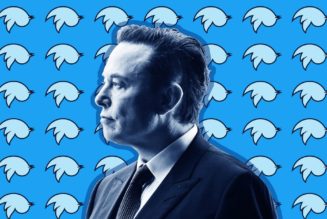
Last week, a flurry of news reports worryingly claimed that Russia was threatening to strand an American astronaut on the International Space Station in direct response to sanctions placed on the country as it continues to invade neighboring Ukraine. But Russia’s state space corporation Roscosmos is trying to put those fears to rest, saying that it will bring home the astronaut as planned.
The NASA astronaut in question is Mark Vande Hei, who has been living on the International Space Station since April 2021. Vande Hei launched to the ISS on a Russian Soyuz rocket from Kazakhstan, along with two cosmonauts. While living on the ISS, his stay was extended to a full year, and he is slated to return home in another Soyuz capsule on March 30th. When he returns home, he’ll have the record for longest continuous spaceflight by an American astronaut, at around 353 days.
Fears that Russia might actually refuse to bring Vande Hei home on the Soyuz started circulating last week. The source of the confusion came from a video shared by RIA Novosti, a Russian state news program, on March 5th that showed footage of Vande Hei on the ISS with his fellow Russian cosmonauts. The clip was cut together in such a way to make it seem like the Russians were going to leave him behind and then detach the Russian portion of the ISS altogether.
The seriousness of this “threat,” however, was always in doubt. Dmitry Rogozin, the head of Roscosmos, shared the video to his Telegram channel, along with a message from RIA Novosti that implied it was a joke. “The Roscosmos television studio jokingly demonstrated the possibility of Russia withdrawing from the ISS project — the undocking of the Russian segment of the station, without which the American part of the project cannot exist,” the caption read.
But plenty of US news reports took the video quite seriously. Good Morning America and Fox News ran stories claiming that Russia was threatening to leave Vande Hei behind, along with several other outlets. Now, Russia is refuting those claims in a new story from TASS, another of the country’s state-run media outlets.
“US astronaut Mark Vande Hei will travel back home in the Soyuz MS-19 spacecraft together with Russia’s Anton Shkaplerov and Pyotr Dubrov on March 30,” Roscosmos said in a statement, according to TASS. Vande Hei and the rest of his crew are slated to land in Kazakhstan, as has been the landing destination for all previous Soyuz landings. Meanwhile, NASA has also maintained that both the US space agency and Roscosmos continue to work together on the International Space Station and that operations continue as normal.
In the TASS report refuting the claims about Vande Hei, Roscosmos tried to downplay the furor. “Roscosmos has never let anybody doubt its reliability as a partner,” the corporation’s press service said.
To be fair, it’s becoming something of a challenge for Roscosmos’ partners to discern when to take “joke” space reports from Russian media and Dmitry Rogozin seriously. Rogozin has been on a bit of a Twitter tirade these past few weeks, tweeting various angry statements and memes in response to the United States and Europe sanctioning Russia over the Ukraine invasion. They’ve ranged from menacing threats — like when he floated the idea of the ISS crashing down on the US without Russia’s help — to ridiculous videos — like this one of a Tom and Jerry cartoon, with the characters labeled as “Ukraine,” “Russia,” and “NATO.”
Rogozin is the head of Russia’s space program, and the things he says online do sometimes translate to actual policy. For instance, Rogozin tweeted a video of himself on March 2nd, in which he issues a series of conditional demands to Roscosmos customer OneWeb. Roscosmos was supposed to launch a new batch of satellites for OneWeb on a Russian Soyuz rocket on March 5th from Kazakhstan, but Rogozin said Russia would not move forward with the launch unless the company promised the satellites would not be used for military purposes and that the UK government divest its entire stake in OneWeb. The company did not acquiesce to the demands, and as a result, Roscosmos rolled back the Soyuz from the launchpad. The launch never took place.









